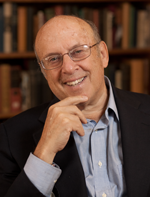
Jeffrey Carduner, Aesthetic Realism consultant, writes:
The Right of Aesthetic Realism to Be Known has always pointed the way to the greatest good sense about ourselves and about our nation. In thrilling, clear, passionate sentences, this issue is about: What’s the relation in our mind between what’s true and what’s attractive or beautiful? Do we see them as one or as separate? And—what does contempt have to do with false nationalism, and with war? Do we, in our everyday lives, love truth enough–and what does art tell us about how to love truth? You’ll be in the midst of exciting, needed knowledge as you read “Truth, Poetry, & World War I,” the new issue of The Right of Aesthetic Realism to Be Known.
The commentary by Ellen Reiss begins:
Dear Unknown Friends:
Here is part 4 of the 1974 lecture Truth & Beauty Have a Love Affair, by Eli Siegel. That title describes, in a lighthearted way, the most important matter in the world. Do truth and beauty—what is true and what is beautiful, attractive, charming, deeply pleasing—go together? Are they of each other?
Mostly, throughout history and now, people have felt that truth is not beautiful, is not lovable, is not to be sought and embraced with joy. There has been the feeling that truth is either something one should try to bear, with gritted teeth, or something to evade, twist, replace with a lie.
In Definitions, and Comment, Mr. Siegel defines truth as “the having of a thing as it is, in mind.” And if we think truth as such is likable only on certain occasions and not others, this simply means that what we think is beautiful, likable, attractive, is not truth itself but our having things our way.
What Happens in Art
In the great lecture we’re publishing, Mr. Siegel has been showing that in all authentic art, both beauty and truth are present and inseparable—they’re having a love affair. We need to see that this is so and to see how. Unless we do—unless we see that art shows truth and beauty are really, deeply, solidly, thrillingly one—we will have that way of seeing which Aesthetic Realism shows is the most hurtful thing in the human mind: contempt. Contempt is “the addition to self through the lessening of something else.”
In all the arts, beauty arises from the artist’s being so just to a particular subject or idea, that he or she feels, sees, hears, meets, finds, shows what the world itself truly is: the oneness of opposites. Let’s take an instance of music that people have cared for—that stirred me once again as I heard it some minutes ago: Stravinsky’s Pulcinella Suite. We’re moved and excited by it because we hear (for example) liveliness and yearning at once, triumph and tottering at once, objection and joy. And we hear these human opposites as one through the way impersonal sounds hurry and linger, rise and descend, meet (even jam up against) each other and are apart. Hearing this, we’re hearing what is true about reality and us: both are a oneness of opposites. And hearing this truth, we’re also hearing beauty.
In the lecture, Mr. Siegel speaks about poems. In poetry too there is a certain sound: poetic music, the all-important music of words, syllables, vowels and consonants. Poetic music is a oneness of the world’s opposites. It is testimony-in-beauty to the fact that the immediate subject and reality itself have been seen truly.
Poems Have Been about War
In the present section of the lecture, Mr. Siegel comments on two poems that were written during World War I and are about it. He is not dealing, here, with the war itself. But elsewhere he spoke and wrote greatly about war. And as a prelude, I’ll quote him, a little, on that tremendous subject—first, from one of the most important writings of the last half century. In issue 165 of this journal, under the headline “What Caused the Wars,” Eli Siegel explains:
It is necessary to see that while the contempt which is in every one of us may make ordinary life more painful than it should be, this contempt is also the main cause of wars. It was contempt that made for the trenches of France in 1915; it was contempt which made for the labor camps of the Second World War. It was contempt which made for that awful mode of retaliation called Nazism.
In writing about contempt, Mr. Siegel is writing also about the subject we are looking at—the matter of truth and whether it’s seen as beautiful….Read more